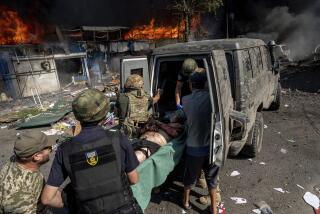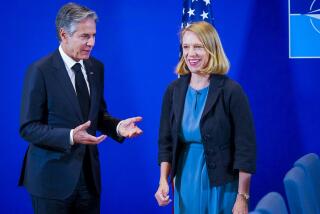Moscow Doesn’t Speak for All
- Share via
The Soviet Union is moving inexorably into an era of greater political pluralism and probably unavoidable regional fragmentation. Is the United States ready to deal with these profound changes?
Pretty clearly it isn’t.
Washington’s political and cultural efforts still focus largely on Moscow, and specifically on President Mikhail S. Gorbachev and his government, even as power becomes increasingly decentralized. More effective U.S. diplomacy demands broader contacts. That requires a more extensive U.S. diplomatic presence.
Washington wishes Gorbachev well, but good wishes are no guarantee of his long-term political survival. The need to develop productive relations with other Soviet politicians is now accepted. The lesson of Iran in the 1970s looms large. The United States blundered when, at the Shah’s behest, its diplomats shunned the Shah’s opponents, who in time became his successors. That mistake must not be repeated, especially in the Soviet Union.
The only two U.S. diplomatic posts in the Soviet Union are in Moscow and Leningrad. This limited presence means that vast areas of a country in ferment are visited only sporadically by American diplomats. Congressional approval is still being awaited to open a consulate in Kiev in the restive Ukraine, with a population of more than 50 million. The State Department also wants to open offices in Central Asia, in Transcaucasia and in the Far Eastern provinces.
A half-dozen or more adequately staffed consulates in a country the size of the Soviet Union would be no extravagance. Coming years are certain to see rising American interest in investing in the country; on-the-spot advice and aid from U.S. government experts would be of great help. No less important is the political need to get to know and evaluate local leaders who one day might become national leaders.
The enormous changes under way in the Soviet Union clearly dictate the need for new and speedy diplomatic responses. The sooner Congress acts to approve more U.S. missions in the Soviet Union, the sooner contacts are expanded across the spectrum of Soviet political and cultural leaders, the better will U.S. interests be served.
More to Read
Sign up for Essential California
The most important California stories and recommendations in your inbox every morning.
You may occasionally receive promotional content from the Los Angeles Times.













